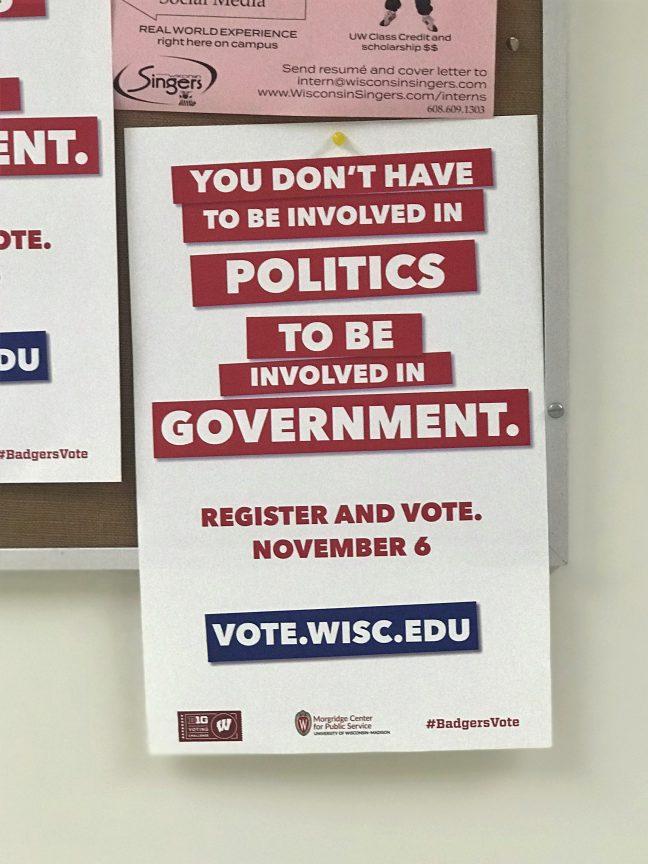Election day is right around the corner; in less than 50 days we will go to the polls and exercise our civic duty and privilege. We will stand in lines, and vote — or roughly 58 percent of eligible voters will.
We live in a time where civic engagement has reached embarrassing lows — our institutions once seen as bipartisan or cooperative are now cast into polarized and unmoving gridlock and everywhere we turn we as a society are being conditioned to view “politics” as a dirty word and a shameful livelihood.
But in the efforts to engage the apathetic student body — in 2016, voter turnout for university students was less than 20 percent — numerous organizations have been trying to encourage and promote voting, posting their fliers and posters across campus — flooding our inboxes in efforts to change the dim reality of student voting turnout.
But within those efforts that are praiseworthy and important, are tactics and marketing messages that are less so. One such, seen nearly ubiquitous around campus and made by those working on the Big Ten Voting Challenge, and Morgridge Center reads, in a fear mongering and naïve tone: “You don’t have to be involved in politics to be involved with government.”
At face value, the poster is seemingly innocent, an olive branch offered between those who may be less than excited by politics, and for those who distance themselves from the political world. Now creating in-roads to groups and individuals who may be turned off by “politics” is a good and wholesome goal, but with its branding, the poster charges “politics” as a dirty word, and as something to be ashamed about, instead, something that fully occupies the world around us.
Historian Howard Zinn once said, “Politics is pointless if it doesn’t enhance the beauty of our lives.” That sentiment, while poetic, cuts to the heart of what politics are: Politics are identity, politics are purpose, politics are the summation of all of humanity’s many beautiful angles — and to belittle and vilify politics into something to be ashamed of is as inaccurate as it is harmful.
This November, it’s on voters to rebrand a presently twisted Senate
Similarly, by doing so, the poster insinuates that being political and being involved with government are somehow disconnected. This is also a bad line to toe, being in government is in itself political, but again, that’s not a bad thing.
Growing and promoting civic engagement among students is vital for creating a future of awareness and enhancing democracy. But by trying to make politics evil, and by casting it in a light that achieves as much is not a step forward, it’s a step backward.
Instead, those who are trying to get out the vote and improve voter turnout should do more to educate and promote politics. Many activities and amenities, from public parks and libraries to local art, all exist because of politics. Politics are not the evil, dark and depressing hellscape portrayed online and in the news — politics at its finest can bring every aspect of society together and grow and achieve change.
Political right’s delegitimization of youth voices a clear mask for fear
If we ever want to improve the polarized climate we live in now, we need to do better than making half-thought-out attempts that only polarize more instead of uniting campus. We need to promote politics as the beautiful and engaging spark of our society that it is.
Adam Ramer ([email protected]) is a senior majoring in political science and history.














